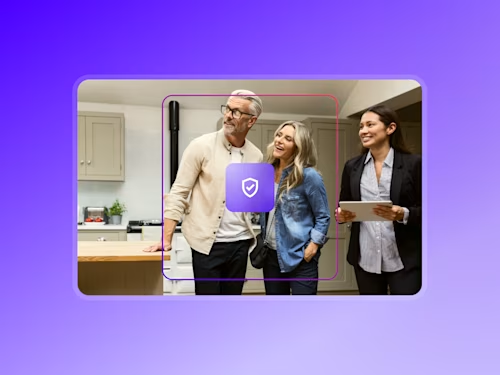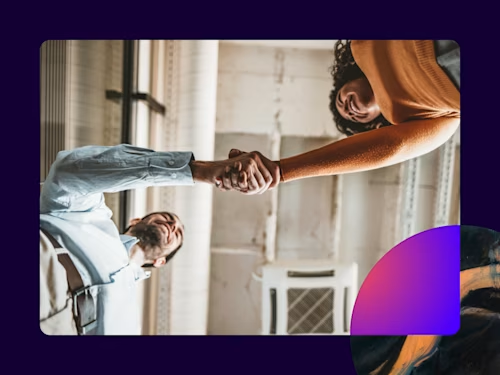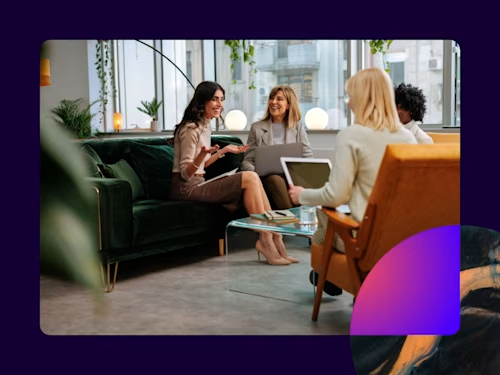
Communicating Value: Q&A with Steve Krause, SVP, Strategy and Product Marketing
Sitting down with Steve Krause, SVP, Strategy & Product Marketing, to learn what he thinks about technology, positioning, messaging and building consensus.

We sat down with Steve Krause, Senior Vice President, Strategy & Product Marketing, to learn about what inspires him and what he thinks about technology, positioning, messaging and building consensus.

How did you first become interested in the technology industry?
I grew up in Silicon Valley when it was changing from orange groves into what we know today. My dad was a hacker guy, and I had access to various forms of computers. As a kid, I was really into them, and I learned to program. But, by the time I got to college, I was bored with it. So I studied politics, writing instruction, and electronic music. But when I got out of school, I worked at a research institute and ended up back in technology.
Early in your career, you worked at a couple of start-ups. What drew you to work at early-stage, entrepreneurial companies?
I founded a couple of companies at the beginning of the commercial Internet in the mid 1990s. Before that, the research institute where I worked did a program about this new thing called the Internet and the Web. From there, we started working with the very few online businesses that existed at the time—like Yahoo, which had something like ten people; they were in a small office with a roll-up door. They were telling us, “You’ve got to get out of the research institute and start a company.” That's how I ended up starting the first one. I found the energy, enthusiasm and challenge of starting something new to be exhilarating.
You previously worked with some of Docusign’s executive leadership team at another company. What is it about them that influenced your decision to join Docusign?
Scott Olrich, Docusign’s COO and Dan Springer, Docusign’s CEO, recruited me. They are a great combination. They have a way of winning, and they also do it right: They care about people. They want to build a business of consequence, sure, but they also want to build something better for people’s lives, and for the world. It's an honor to be part of that.
Listening to the customer is the center of the Docusign organization. How do you cultivate that mindset within your team?
We invite customers to talk to us through a variety of channels and events. And with our Advisory Councils, we also invite customers to talk to each other, because they surface things we may not otherwise hear. There's a lot of value in that.
You’ve been with the company since 2017 as it transformed from the e-signature leader to the Agreement Cloud Company. What aspects in that journey have been the most challenging and the most rewarding?
We heard our customers say: “We love what you did for signing. Can you do it for the rest of the agreement process?” They told us they can't sign something unless it's been prepared, and then they need to act on and manage whatever’s been signed. They told us to put the whole process together. So, the biggest challenge, and the biggest reward, is that we're one of the very few companies who get the chance to take a product that was already successful and respond to customers who are saying “do more, be more.” It's a multi-year evolution, but it's profound.
You are the executive sponsor of the Docusign Trueability employee resource group (ERG). What are some of the challenges your members face, and what does the ERG do to address these challenges?
Trueability is for people with disabilities and their allies. As you might imagine, people with disabilities in the workplace don't necessarily have the same experience as everyone else. Docusign, like any other employer, is subject to a set of legal rules, but that's not enough. We want to do the right thing. We want to make sure that everyone has a chance to do the work of their lives at Docusign. If people have different requirements to show up and do that work, then we want to be able to meet them there. We need to understand how we can support people's needs -- even sensitivities that are not immediately visible but can impact the type or location of a desk somebody needs to work effectively. That’s what Trueability is about. It's about raising awareness, and it's about advocating for resources or accommodations for people who need them.
What are some of the steps Docusign can take to transform the work experience in this way?
I think Docusign is doing far more than just complying with the ADA and various other kinds of regulations. There’s an opportunity to create a single source of information for new employees where they can find the information they need to determine what support they can get. People can be sensitive about disclosing a condition, especially as new hires. We want to provide an environment and access to information so that people who might have a question don't have to feel sheepish or threatened asking. So, some of it is a matter of simply organizing the information, but it's also cultural. It's showing that Docusign is a place that welcomes folks who have different kinds of abilities, and there is a path to finding the accommodations some people need, even if most people don’t need those accommodations.
What are your guiding principles that influence your leadership style, and how might you evolve your style to be even more effective in the Anywhere Economy?
I've always believed in flexible management and not fixating on a single style. I look at the situation and have a toolkit that I can apply to that circumstance. Obviously, the toolkit has to either expand, or, at least be applied differently, to the world of remote work. We're still experimenting and learning about what works. The big thing is, you need to be okay with the reality of a moving target. You need to adapt to change as it comes, or even better, get in front of the change when you can.
What do you look for when recruiting talent to your product marketing team?
Product marketing is fundamentally a communications position -- we communicate value. I look for people who have a willingness to listen to others, synthesize input, figure out what matters, and help us translate that into compelling articulations of value for our products and services. Those are some characteristics I look for in potential product marketers. However, separate from product marketing skills, I also look for people who have a drive to want to better themselves. These people make everybody else around them better. They’re multipliers, they’re good collaborators, they're customer centric, they understand, and they treat others respectfully. People with that drive want to lift others. It's better for the business, and it's certainly better for the culture. We work for a company, but, at the end of the day, we work with people. If the people we're working with are making each other better, that is the best culture.
Why should somebody come work on your team?
Most folks don't get the opportunity to tell a story about a product that people love. Employees share stories -- and these go back to time immemorial -- about people they hardly know spontaneously saying “I love Docusign” or even in some cases hugging them. It’s not spin to say eSignature allows organizations to do business faster, save money, lower risk, and help the environment. Who wouldn't want to tell that story? Who wouldn't want to have a million customers to talk to, and have them help us tell our story? For a product marketer, it’s a dream come true.
The CEO of Docusign, Dan Springer, said he wants everybody to look back at their time and say they did the work of their life at Docusign. Are you? And if so, how?
Yes, I am indeed living the product marketer’s dream. And in my other role, as head of strategy, I have the wonderful challenge of building on this multibillion-dollar foundation, eSignature, to solve broader problems with the Docusign Agreement Cloud—doing what we did for signing but for the rest of the agreement process before and after the signature. It’s an amazing opportunity.
Besides work, what other endeavors do you find gratifying?
I find being a parent super gratifying. It’s the most important job I have. It's a privilege to be able to love, influence and play a positive role in my daughter's life. There’s always something new to learn or experience, for both of us.
Interested in doing the work of your life at Docusign? Check out our openings. We’d love to talk more.
Related posts
Docusign IAM is the agreement platform your business needs


